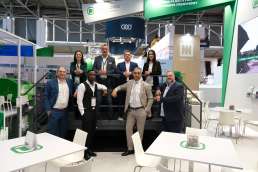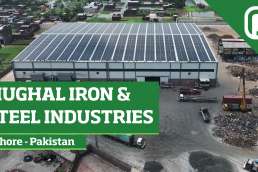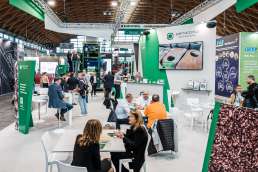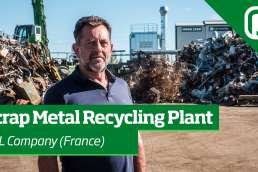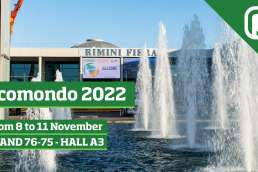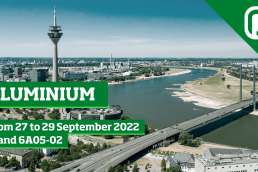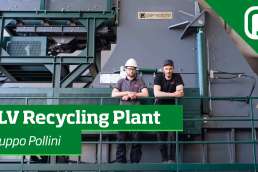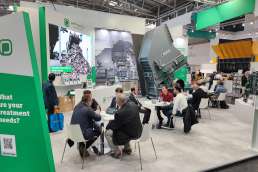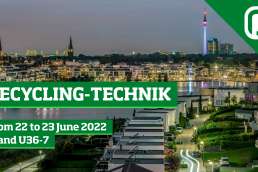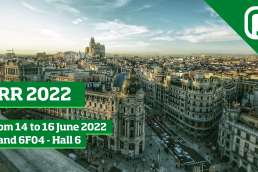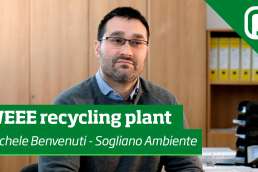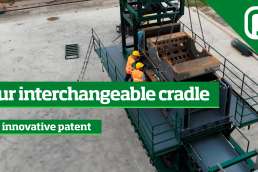Company quality policy
Research and development
As a result of being continuously confronted with the industry issues, customer needs and direct tests on our internal metal recycling plant, Panizzolo Recycling team is constantly geared towards researching and developing new technical solutions to cater for customers.
In-house Researchand Development activities
The presence in the company of a metal waste processing plant specifically intended for production and testing implies that our team are faced daily with the trends of the secondary raw materials market, and interact with companies operating in the metal waste trading sector. The thorough knowledge of the market is an essential condition to be able to provide our customers with high-performance products that optimise production cycle costs and the profitability of output materials. Thanks once more to the in-company metal waste processing plant, our technical team are able to perform targeted tests while developing new products and patents. Through a continuous interaction between the production and technical managers, every single production detail can be examined and improved with a view to providing the end customer with a highly efficient, perfect product.
Off-house Researchand Development activities
Over the years, long-term partnerships have been established with the Engineering Department of the University of Padua and with the technical laboratories of a number of foundries. By leveraging these relationships, our technical team are able to thoroughly analyse problems and solutions observed in the field. The laboratory studies conducted on the compositions of the materials treated and used to build Panizzolo Recycling metal recovery machines have led to devising a design method based on data analysis and consistent optimisation of our recycling systems.
Castings and special steels
Thanks to the company’s Research and Development policies, wear-resistant steels and special alloys are tested for the components of metal waste processing machines. As a result of these studies, the life cycle of the components can be extended while defining the casting and steels that are most suitable for treating each type of waste. In so doing, processing can be optimised and output materials sorted out in a more effective way. Our goal is optimising the machinery’s yield/wear ratio and gearing ferrous scrap processing to the customer’s best interests.
Design
Examining problems in the field and thoroughly analysing their causes are major building blocks of excellent quality design. Each of our activities is aimed at perfecting recycling logics in order to improve the performance of work processes and output materials.
Development of new recycling solutions
Thanks to the R&D activities constantly carried out at the company, our technical team are committed day after day to devising new solutions aimed at recovering secondary raw materials. A theoretical calculation step makes it possible to assess the real mechanical and structural feasibility of a project; a subsequent 3D design stage and working prototype implementation lead to massive tests at our in-house metal waste recycling plant. A new product is thoroughly tested for mechanical operation, structural configuration, production capacity and actual profitability. Our team make changes to the project in the event of any issues and inefficiencies, until an optimal level of implementation is achieved before the final engineering step.
Customer-tailored recycling plant design
Building a recycling plant involves a first consultancy stage to identify the customer’s needs. Depending on requirements, a single machine can be integrated into an existing system or a complete, turnkey recycling plant can be implemented. Direct knowledge of the target market makes us the ideal partner to perfectly balance production costs and the profitability of the secondary raw materials to be re-entered into the economic cycle. Thanks to our know-how, we can support the customer not only by supplying the machines, but also in the logistic and operating choices for the whole plant – strategic choices for streamlining processes and boosting yield.
Production
Welding and Fabrication
Panizzolo Recycling relies on Italian metalwork companies, certified UNI EN ISO 9001 for quality management throughout the manufacturing process, and UNI EN ISO 3834-2 for welding processes. The latter is a particularly important certification that is issued by the Italian Welding Institute to metalwork companies and individual welders after attending a highly professionalising course of the Institute. The certification is issued following specific training and after successfully passing practical tests. Perfectly performing quality welds, in line with the project’s need for resistance, is aimed at removing any points of fragility. Furthermore, all the new solutions that are developed as a result of the company’s Research and Development process are constantly shared with our partners with a view to improving metal recovery machines also during the manufacturing process.
The metal structures consist of steels that meet the highest quality standards. The criteria adopted by foundries during casting guarantee a raw material capable of withstanding significant stress test peaks. These parameters, specifically created for equipment subject to continuous stress, are established and acknowledged internationally. In order to keep the production process constantly monitored and be able to carry out periodic meetings on the subject, metalwork companies are selected in a geographically limited area. All our suppliers are chosen based on high quality standards in machining individual pieces, eschewing mass, lower level production.
Precision machining
Precision machining is entrusted to ISO 9001 certified partners in the region that are selected for their ability to perform precision machining with CNC machines on very large and heavy parts. By using 4.0 technologies and professional Tool Rooms, machining is carried out via remote software, thus eliminating any contingencies and inconsistencies due to manual settings. Mechanical operations are completed by measurement and calibration instruments for tool pre-setting. Thanks to these partners, we can assure excellent precision in highly abrasion-resistant hardox steel machining, consequently at a high processing speed and with constant precision throughout the life cycle. Compliance with the initial design is ensured by periodic meetings and quality checks performed by means of precision measurements and by our in-house quality control managers.
Pre-assembly and testing
The final testing of each recycling machine or the whole metal waste processing plant is carried out in a specific area set aside for assembly and final testing. The main goal is inspecting all parts, in particular mechanical, electrical and hydraulic components, for proper operation. Procedures vary depending on the machine but can be generally summarised in the following test process:
- analysis of the final installation site in order to prepare an assembly and testing area having the same logistic features;
- checking quality and proper operation of all structures, steelworks and mechanical parts;
- assembly, wiring and functional test of the electrical panel and related connections with the individual components of the recycling system;
- assembly and testing of all electrical safety connections;
- assembly, connection and setting up the control unit and all hydraulic components;
- uploading the control and monitoring software and all operating parameters; testing correct communication between software and each mechanical and electrical component; remote connection test.
Transport
After successfully testing machinery, disassembly and packing procedures can be started. Metal scrap processing machines are partially disassembled, according to a logic designed to optimise non-special consignment and final assembly on site. The Flex Mobile Series is specifically designed for easy transport and quick installation, which is made possible by hydraulic cylinders for loading onto lorries and special hooks for roll-off boxes.
For transport by sea, Panizzolo Recycling uses the services of certified companies, and the technicians of both teams join forces to prepare the containers to be embarked, package components to assure their safety and integrity.
The access doors of containers are specially lead-sealed; the identification numbers of the containers and of the batches of machinery the contain are recorded. To prevent machinery from being damaged by atmospheric agents such as heat, humidity, salt and rain infiltrations during transport by sea, every single component is packed and sealed in special coverings designed for complete insulation.
Customer training
Turnkey delivery of Panizzolo Recycling scrap processing systems involves a training stage for the final operators. Our team trains the customer’s staff to properly carry out processing, correctly and safely manage processes, and perform routine maintenance operations. Training is specific depending on the recycling plant or machinery and consists of theoretical and hands-on sessions on the machine. Thorough knowledge of the production capacity of a recycling system is essential for the smooth operation and long-term profitability of the product supplied.
What is your treatment requirement?
We listen to your needs and can supply you with the best technologies to meet your business goals.
The processing cycles are designed to maximise production activities, to be able to attain full recovery of secondary raw materials and to reintroduce them directly into the economic cycle.
Towards the futureof the sector
It’s good to keep up-to-date on a market always on the move.
Follow the news in the sector and the Panizzolo columns.












